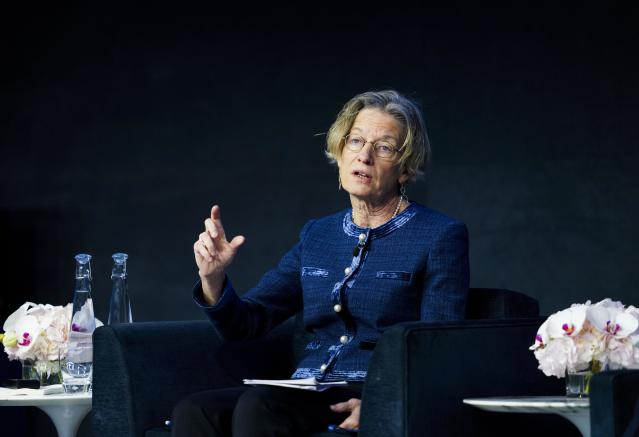Markets don't do the central banks' work
We often hear that movements in market interest rates, and other financial prices are “doing the central bank’s work”.

>> Central bank meetings and impacts on currency market
BoE policymaker Catherine Mann argued that, in some ways the Bank does not need to cut rates because the market is already doing the job. Over in the US there’s a similar issue as some in the market are unnerved by the fact that financial conditions have eased via stronger financial asset prices but the Fed is not pushing back against this in spite of some higher-than-expected inflation prints recently. Will the BoE and Fed hold off from cutting rates because the market has ‘eased already’.
Mr. Steve Barrow, Head of the Standard Bank G10 Strategy, said the answer is not only ‘no’, but neither bank should pay too much attention.
It is undoubtedly the case that movements in market interest rates do change the financial conditions facing consumers and firms. Mortgage rates, for instance, will tend to fall as bond yields decline, irrespective of whether central banks cut policy rates. But crucially there’s a significant psychological effect that comes from central bank easing (or tightening) that goes beyond the borrowing and lending rates firms and consumers face.
For instance, if central banks want to stimulate demand they can cut official rates. Doing so sends a signal to firms and consumers that this is what the bank wants and, most likely, these cuts will continue until demand is sufficiently stimulated. This can give firms and consumers the confidence to plan their spending and investment activity in accordance with the central banks aims. This cannot come from a mere fall in market rates as there can be little surety that these falls will last.
Another reason why central banks should act and not leave the market to do the work is that they need to maintain credibility with the public so that inflation expectations are anchored around the inflation target. This can only be done by changing policy and taking the ‘credit’ if the decision proves correct. Another reason why central banks should eschew reliance on financial markets is that, very often market rates can move for reasons unrelated to the outlook for monetary policy.
For instance, a plunge in the exchange rate could lift market interest rates sharply but this need not reflect the intentions of the central bank when it comes to policy rates. The bank might, for example, welcome the fall in the currency depending on the economic situation it faces.
“For all these reasons we are sceptical that central banks should, or will use movements in market rates and general financial conditions as any sort of substitute for actual rate changes. This is why we still see the BoE cutting rates from June and also why the Fed is right to persist in its forecasting of lower rates even though financial conditions have eased”, said Mr. Steve Barrow.
This being said, there is one area in which the interplay between central bank policy and market expectations – and hence market interest rates – can prove sub-optimal. It occurs when central banks give ‘too much’ information about how policy is likely to develop in the future. To see this, think back to the end of 2021 when the fed funds target was just 0.1%. At the time, PCE prices for December were more than three times the 2% target at 6.2% and yet the FOMC members’ dots plot put the end-2022 fed funds rate at just 0.9% (it turned out to be 4.5%).
Did the market price in a much higher Fed funds rate than the Fed given the surge in inflation? In fact, the market was lower, at 0.8%. Did this reflect the fact that the market made an even bigger mistake than the Fed, or that Fed rate ‘guidance’ conditioned the market to think that the Fed could control inflation with such modest increases in policy rates through 2022? “We think it was the latter. In short, the room for the market to dictate financial conditions is actually restricted by the central bank, or at least by those that give clear guidance about future policy rates”, said Mr. Steve Barrow.








